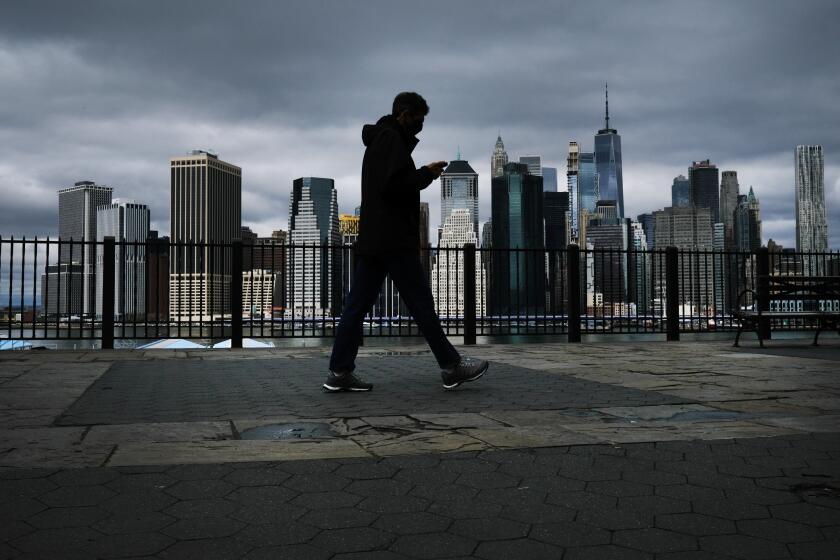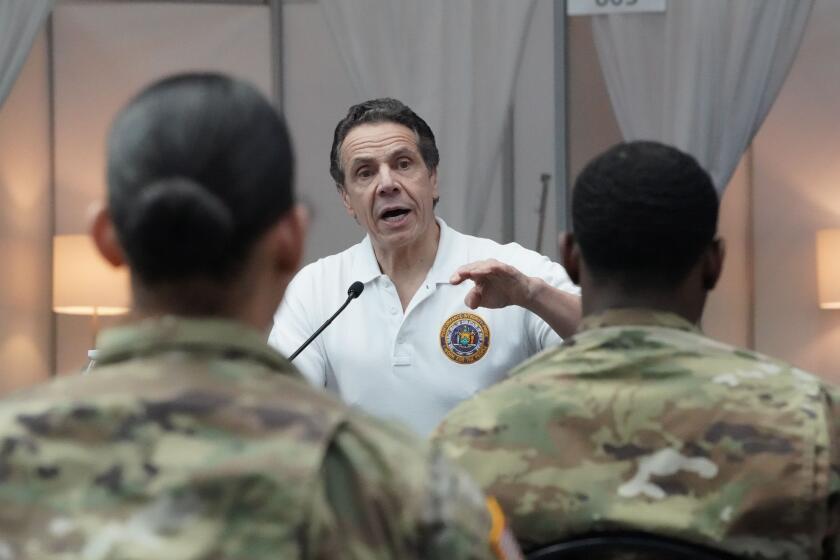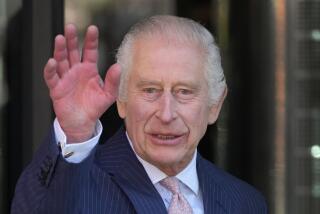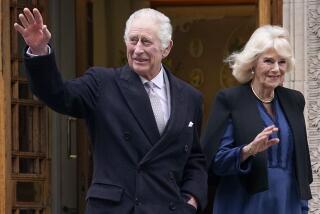British Prime Minister Boris Johnson hospitalized with COVID-19
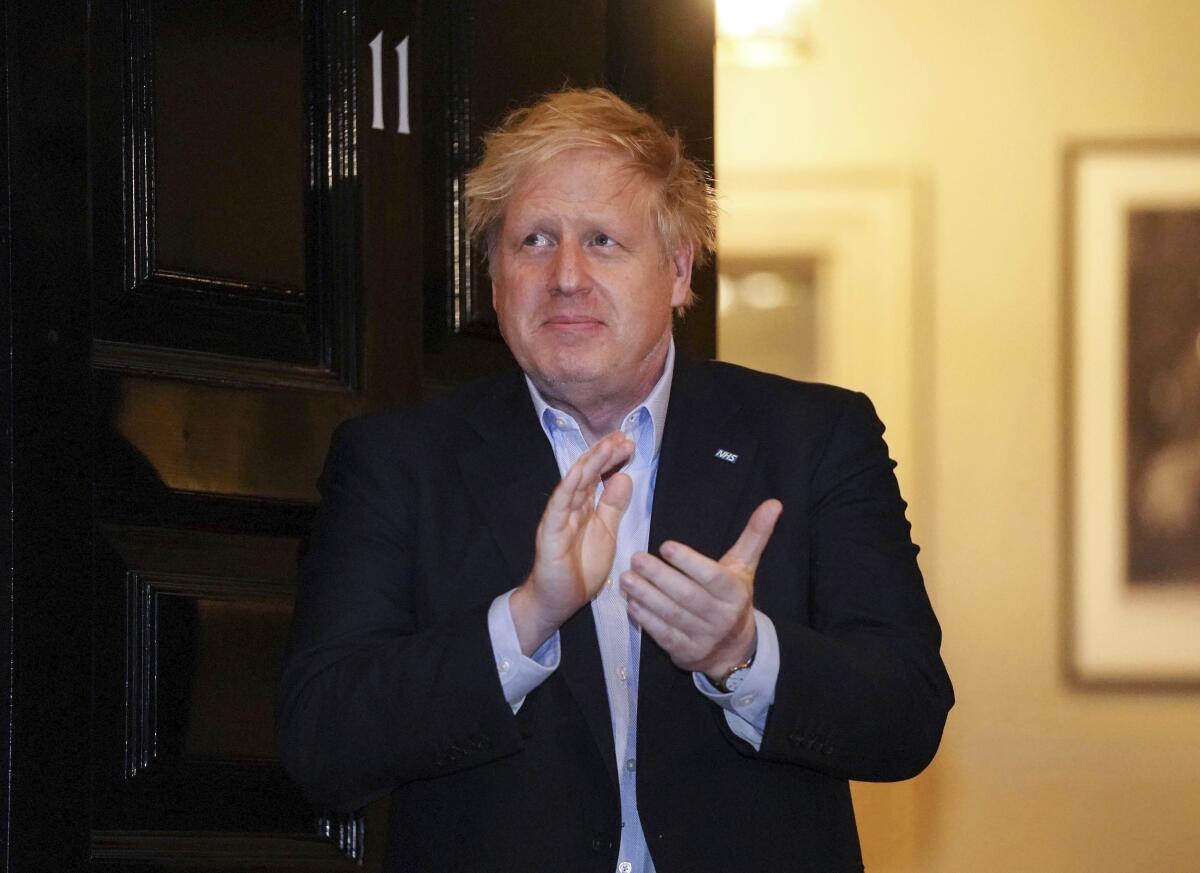
- Share via
LONDON — British Prime Minister Boris Johnson was admitted to a hospital Sunday for tests, his office said, because he is still suffering symptoms 10 days after he was diagnosed with COVID-19.
Johnson’s office said the admission to an undisclosed London hospital came on the advice of his doctor and was not an emergency. The prime minister’s Downing Street office said it was a “precautionary step” and Johnson remains in charge of the government.
Before his hospitalization, Johnson, 55, had been quarantined in his Downing Street residence since being diagnosed on March 26.
Johnson has continued to chair daily meetings on Britain’s response to the outbreak, and has released several video messages during his 10 days in isolation.
In a message Friday, a flushed and red-eyed Johnson said he was feeling better but still had a fever.
Week ahead will be worst yet for coronavirus deaths, Surgeon General Jerome Adams warns. Outbreak not under control, task force’s Fauci says.
The virus causes mild to moderate symptoms in most people, but for some, especially older adults and the infirm, it can cause pneumonia and lead to death.
President Trump offered encouragement to Johnson as he opened a White House briefing on the pandemic Sunday. ”All Americans are praying for him,” Trump said.
Johnson has received medical advice by phone during his illness, but going to a hospital means doctors can see him in person.
Dr. Rupert Beale, a group leader of the cell biology of infection lab at the Francis Crick Institute for biomedical studies, said doctors would probably “be monitoring important vital signs such as oxygen saturations,” as well as performing blood tests, assessing Johnson’s organ function and possibly performing a CT scan on his chest to assess his lungs.
Foreign Secretary Dominic Raab, who has been designated to take over if Johnson becomes incapacitated, is set to lead the government’s coronavirus meeting Monday.
Johnson’s fiancee, Carrie Symonds, 32, revealed Saturday that she had had coronavirus symptoms for a week, though she wasn’t tested. Symonds, who is pregnant, said she was now “on the mend.” She has not been staying with the prime minister in Downing Street since his diagnosis.
The government said Sunday that almost 48,000 people had been confirmed to have COVID-19 in the U.K., and 4,934 have died.
Johnson replaced Theresa May as Conservative prime minister in July and won a resounding election victory in December on a promise to complete Britain’s exit from the European Union. But Brexit, which became official Jan. 31, has been overshadowed by the coronavirus pandemic sweeping the globe.
In fighting the coronavirus pandemic, the U.S. is going to live and die by its decentralized public health system.
Johnson’s government was slower than those in some European countries to impose restrictions on daily life in response to the pandemic, leading his critics to accuse him of complacency. He imposed an effective nationwide lockdown March 23, but his government remains under huge pressure to boost the country’s number of hospital beds and ventilators and to expand testing for the virus.
London has been the center of the outbreak in the U.K., and politicians and civil servants have been hit hard. Several other members of Johnson’s government have also tested positive for the virus, including Health Secretary Matt Hancock and junior Health Minister Nadine Dorries. Both have recovered.
News of Johnson’s admission to hospital came an hour after Queen Elizabeth II made a rare televised address to the nation, in which she urged Britons to remain “united and resolute” in the fight against the virus.
“We will succeed — and that success will belong to every one of us,” the 93-year-old monarch said, drawing parallels to the struggle of World War II.
“We should take comfort that while we may have more still to endure, better days will return: We will be with our friends again; we will be with our families again; we will meet again,” she said.
More to Read
Sign up for Essential California
The most important California stories and recommendations in your inbox every morning.
You may occasionally receive promotional content from the Los Angeles Times.
